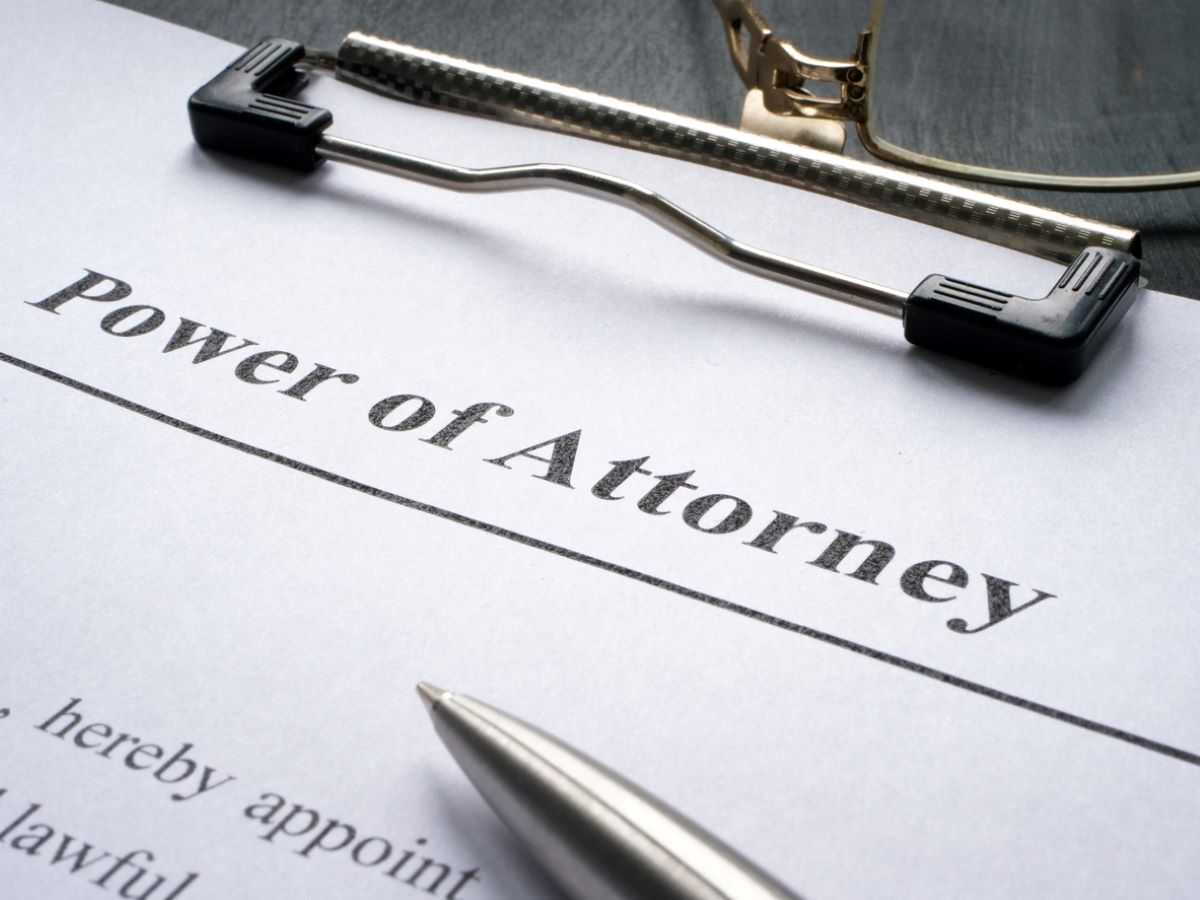Do I need a Power of Attorney?
A power of attorney, also known as an LPA (Lasting Power of Attorney) is when you give another individual the legal power to make decisions about your health, welfare, or finances.
Establishing a power of attorney is a critical part of anybody’s financial plan, because it gives you the peace of mind that someone you trust is in charge of your affairs if it became necessary for them to do so. Life is not linear and unexpected events occur that we are not prepared for; this is why it is better to take pre-emptive steps now to give you this comfort.
Arrange your free initial consultation
When are powers of attorney used?
There are two main types of Power of Attorney that you should be aware of, which cost £82 each to set up.
A Property and Financial Affairs POA can be used when the donor has capacity, unless the document specifies otherwise. In contrast, however, a Health and Welfare POA can only be in the event that you stop having the mental capacity to do this for yourself. Having mental capacity refers to the cognitive ability to make your own decisions and understand the implications of such decisions coherently.
Property and Financial Affairs
- This gives your attorney the powers to make decisions on all things related to your financial affairs and property.
- This can range from managing your bank accounts, organising bill payments, paying off debts, or even selling a property.
- Crucially, this type of LPA gives the attorney the powers to act in this capacity immediately, regardless of whether you have lost mental capacity or not. As such, if you do not wish for this to be the case, you must clearly state this when creating the LPA.
Health and Welfare
- This gives your attorney the power to make decisions over your medical care, as well as your daily routine (washing, eating, etc).
- Your attorney(s) will have the power to decide where you live, whether a care home is appropriate, or indeed whether certain treatments are suitable
- Conversely, this can only be in effect once you lose mental capacity to appropriately act for yourself.
How to set up a Power of Attorney?
The first step in this journey is, of course, deciding on whom you wish your attorney(s) to be. This will need to be someone that you are confident you can trust and will act in your best interest in the event of you losing mental capacity.
You will firstly need to obtain the LPA forms and an information pack from the Office of the Public Guardian. This can be done online through Gov.UK or you can order them by calling 0300 456 0300. The Office of the Public Guardian’s own website has a step-by-step guide to completing the forms correctly, as it’s vital that you do not make any mistakes as this can lead to the request being rejected. For a fee, a solicitor can help complete the forms.
At this point, you will need to have the LPA signed by a ‘certificate provider’ which is someone that confirms you have not been put under pressure to sign it. This can be someone that you have known for over 2 years, or a professional person (doctor, solicitor). You will then need to sign the completed forms and send them to the Office of the Public Guardian.
How long does power of attorney take to set up?
Once you have completed the steps above, you will then need to register the LPA with the Office of the Public Guardian. Your LPA will not be viable until this registration has been complete. This process can take up to 20 weeks, so please be aware of this when you are considering establishing an LPA. This also adds weight to the argument that you should consider sorting this out now without further delays.
If you do not feel confident in doing this yourself, you may find it easier to use a solicitor so that you know you have gone through the correct process. Please do not hesitate to get in contact with us at The Private Office as we have many professional contacts that we can put you in touch with for this service.
Who can override a power of attorney?
Like many things, you can of course revoke and cancel the power of attorney at anytime. However, you must still have mental capacity to do so. The process will involve you informing both your attorney and the Office of the Public Guardian that you are revoking it so that they can remove the active LPA from the register.
Why obtaining a power of attorney shouldn’t be ignored
Most people are aware that they should have a will in place to organise their affairs when they pass away. However, there is not the same emphasis placed on obtaining an LPA for when you are still alive. A study from Canada Life highlighted that around 77% of over 55s in the UK have not registered any form of LPA, yet around 1 in 14 people over the age of 65 in the UK suffers from dementia.
It is crucial that this should be viewed as a high priority when you are addressing your personal financial planning. At a cost of £82 (or £164 for both), it is something that is well worth getting organised so that you can have peace of mind that you will be cared for if the worst were to happen.
If you’d like to find out more about how we can help, why not get in touch and speak to one of our expert team for a free initial consultation.
Arrange your free initial consultation
This article is intended for general information only, it does not constitute individual or legal advice and should not be used to inform financial decisions.

